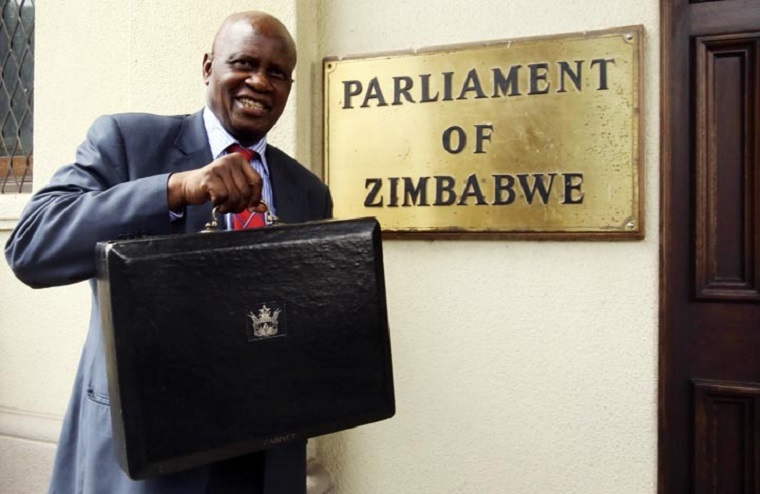Zimbabwe’s economy will grow by 3.7 percent this year, rising to 4.5 next year, Finance Minister Patrick Chinamasa said today as he presented the 2018 national budget with a $5.8 billion envelope.
Chinamasa, also scrapped the controversial indigenisation law, the cornerstone of former president Robert Mugabe’s reelection in the past two general elections, restricting it to two minerals, platinum and diamonds.
Analysts say the policy has been the single largest impediment to foreign direct investment to the southern African nation.
“The proposed Amendments will confine the 51/49 Indigenisation threshold to only the two minerals, namely diamonds and platinum, in the extractive sector. The 51/49 threshold will not apply to the rest of the extractive sector, nor will it apply to the other sectors of the economy, which will be open to any investor regardless of nationality,” Chinamasa said to a large applause from legislators across the house.
To cut government expenditure, Chinamasa said government will retire all workers at 65 years and above, and will offer voluntary retirement packages to others. The government will also maintain a freeze on new hiring, except for critical positions and will also cut the number of youth officers from 7 269 to 3 530, in a move which is expected to result savings of $1.6 million per month and $19.3 million per annum.
“Furthermore, 528 members of the Public Service without the requisite qualifications in terms of Section 18(4) e (ii) of the Public Service Regulations are being retired.”
Chinamasa assured civil servants that government would go ahead with its commitment to pay bonuses for civil servants with $176 million having been set aside for this.
Zimbabwe, he said, will seek to reengage with foreign creditors and to accelerate the arrears clearance plan it agreed to with foreign creditors in 2015 in Lima, Peru.
To attract complementary support from development partners and access to external borrowings, government would be pursuing re-engagement with international financial institutions, as well as the European Union (EU), United Kingdom (UK) and the United States of America (USA) “at the top political level.”.
Chinamasa pegged government expenditure for 2018 at $5.7 billion which will result in a $672 million deficit. This year government is projected to incur a deficit of $1.7 billion.
Employment costs are seen taking up $3.3 billion, with $2.6 billion being set aside for the Public Service wage bill, inclusive of Grant Aided Institutions. The education sector (primary, secondary and tertiary) will consume 42 percent ($1.1 billion) of the public service wage bill while the security sector takes up 21 percent, Health 11 percent, agriculture a three percent and the rest of the service at 22 percent.
Chinamasa said President Emmerson Mnangagwa had already approved the downsizing of the country’s Diplomatic Missions — currently 46 embassies and consulates — which require budgetary support of $65 million annually.
To reduce the drain on fiscus Chinamasa said government will reform state enterprises that exhibit potential while those which cannot be rehabilitated will be privatised or shut down.
“I, therefore, emphasise that government support to public entities will, strictly be conditional on credible and bankable turn-around strategies, complemented stringent cost containment measures.”- The Source
(221 VIEWS)







0 Comments